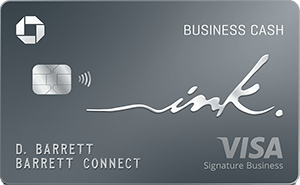⏰ Estimated read time: 5 minutes
Advertisement
NerdWallet rating 5.0/5.0 | NerdWallet rating 4.8/5.0 | NerdWallet rating 4.4/5.0 |
Annual fee $0 | Annual fee $0 | Annual fee $0 |
Regular APR 18.49%-24.49% Variable APR | Regular APR 18.49%-24.49% Variable APR | Regular APR 18.49%-26.49% Variable APR |
Intro APR 0% intro APR on Purchases for 12 months | Intro APR 0% intro APR on Purchases for 12 months | Intro APR 0% intro APR on purchases for 12 months from the date of account opening |
Recommended credit score 690-850good - excellent | Recommended credit score 690-850good - excellent | Recommended credit score 690-850good - excellent |
at Chase | at Chase | at American Express |
- Business name, address and phone number.
- Annual revenue, number of employees and years in business.
- Type of business, industry and legal structure.
- Estimated monthly spending.
- Employer identification number (EIN) if you have one.
- Name, date of birth and Social Security number.
- Home address, phone number and email address.
- Personal credit score.




